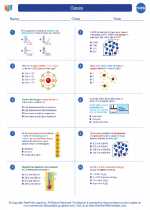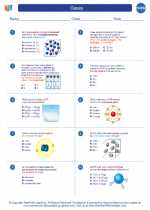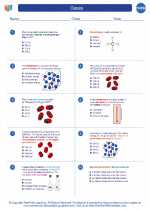Geosphere
The geosphere refers to the solid part of the Earth consisting of the crust, mantle, and core. It is composed of various elements and minerals that form rocks, which make up the Earth's surface and interior. Understanding the geosphere is crucial for studying geological processes, natural resources, and environmental interactions.
Layers of the Geosphere
The geosphere is divided into several layers:
- Crust: The outermost layer of the Earth, consisting of solid rock. It is further divided into the continental crust and oceanic crust.
- Mantle: The layer beneath the crust, composed of solid rock that can flow over long periods of time. It is the thickest layer of the Earth.
- Core: The innermost layer, consisting of the outer core (molten iron and nickel) and the inner core (solid iron and nickel).
Geological Processes
Several geological processes shape the geosphere, including:
- Plate Tectonics: The movement of the Earth's lithospheric plates, leading to the formation of mountains, earthquakes, and volcanic activity.
- Erosion: The wearing away of rock and soil by natural forces such as wind, water, and ice.
- Weathering: The breakdown of rocks and minerals at the Earth's surface due to exposure to environmental factors.
- Deposition: The accumulation of sediments and minerals, often leading to the formation of sedimentary rocks.
Natural Resources
The geosphere is a source of various natural resources, including:
- Minerals: Inorganic substances with economic value, such as gold, copper, and diamonds.
- Fossil Fuels: Energy sources derived from ancient organic matter, including coal, oil, and natural gas.
- Soil: A vital resource for agriculture and plant growth, formed through the weathering of rocks and organic matter.
Environmental Interactions
The geosphere interacts with other Earth systems, influencing processes such as:
- Hydrological Cycle: The movement of water between the geosphere, atmosphere, and hydrosphere through processes like evaporation, precipitation, and runoff.
- Rock Cycle: The continuous process of rock formation, transformation, and recycling within the geosphere.
- Climate Change: The geosphere plays a role in the carbon cycle and can be affected by human activities, contributing to changes in global climate patterns.
Study Tips
To effectively study the geosphere, consider the following tips:
- Visualize the layers of the geosphere and their properties, such as composition and behavior under different conditions.
- Explore real-world examples of geological processes, such as volcanic eruptions, mountain formation, and erosion patterns.
- Understand the importance of sustainable resource management and the impact of human activities on the geosphere.
- Connect the geosphere to other Earth systems, such as the atmosphere, biosphere, and hydrosphere, to grasp its interconnected nature.
By applying these study tips and understanding the fundamental concepts of the geosphere, you can gain a comprehensive understanding of the Earth's solid foundation and its significance in various scientific disciplines.
.


